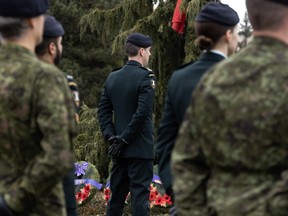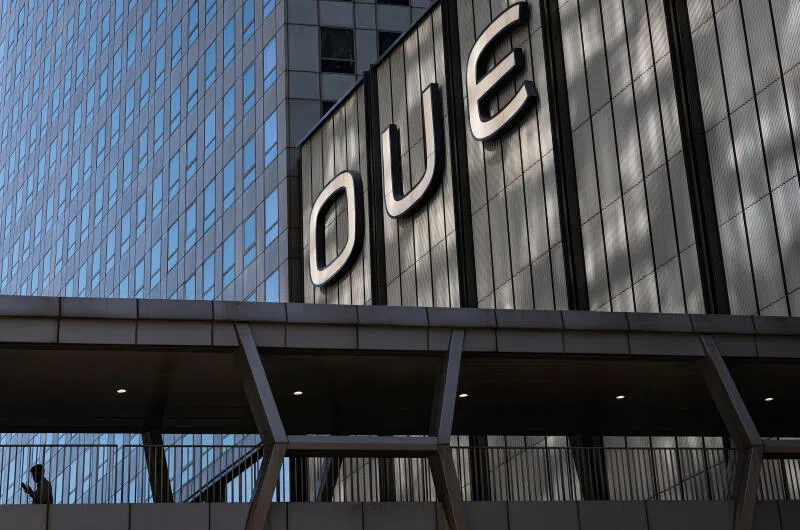Its members have played roles in major conflicts and various peacetime operations globally, including code breaking, cryptography and reconnaissance
Article content
During the day, Lieutenant Mike Robinson works a full-time job at CIBC in the financial crime sphere. Once his civilian duties end, however, he’s an intelligence support team commander leading a team of eight.
Robinson is a reservist with the 2 Intelligence Company, a unit of the Canadian Armed Forces that was top-secret until the 1980s.
Article content
Canada’s 2 Intelligence Company has roots that trace back more than a century, to 1903, and its members have played roles in major conflicts and various peacetime operations globally, including code breaking, cryptography and reconnaissance.
Advertisement 2
Article content
“It was never an issue of if I would join, it was just when and where,” says Robinson, a first-generation Canadian whose parents hail from Trinidad and the U.S.
Recommended from Editorial
Reservists work a minimum of one night a week and one weekend a month, though Robinson says in intelligence they “very much exceed” that requirement. On May 23, a fundraising event in support of the unit will be held at Casa Loma.
Robinson says his role not only involves leadership but also strategic handling of the team, including the administration and training of troops, and managing intelligence operations that support both domestic and international missions.
Recent activities have included operations in Bruce and Huron County with a focus on preparing for and responding to local emergencies, including the upcoming wildfire season and its implications for regions like Ontario and Alberta.
Robinson explains that all recruits must undergo basic military qualification (BMQ), where they learn soldiering skills such as weapons handling and first aid. Every individual is first trained as a soldier before moving on to specialized training and specific trades, including specific intelligence functions — like how to effectively summarize extensive intelligence into concise, actionable items for commanders.
Article content
Advertisement 3
Article content
“First I learned how to run a team and then I learned how to run a team of intelligence operators,” he says. Officers can be trained as quickly as two years, he adds, but it usually takes closer to four or five.

Another focus currently for the unit is the evolving cyber warfare landscape.
Robinson says the core mission of intelligence is to identify threats so that commanders can effectively mitigate risks. This involves a deep understanding of the battlefield context and collaboration with command counterparts who decide on the engagement tactics.
Intelligence personnel analyze potential threats, including those to critical infrastructure, government facilities, and democratic institutions from foreign adversaries, but they do not make decisions on offensive actions.
“Intelligence is largely attached to a commander’s planning process where we’ll identify threats for him or her, and then he or she will then determine how to tackle that threat from the offensive side of things,” he explains.
The unit is supported by a separate non-profit wing, the 2 Intelligence Company Senate, which provides supplemental training and education for intelligence reservists, while also promoting public awareness of Canada’s military intelligence community.
Advertisement 4
Article content
Honorary Lieutenant-Colonel Don Stewart is the treasurer of the 2 Intelligence Company Senate. He says today’s reservists come from all walks of life — teachers, lawyers, accountants, students, security professionals — but are brought together by shared values.
“It’s people that care about this country,” he says, adding that diverse backgrounds are particularly important in intelligence work. “You’re going to find the optimal solution and the viewpoints to help generate the best kind of interpretation of information available.”
While talking about the 2 Intelligence Company, he invokes a quote from Winston Churchill: “The reservist is twice the citizen.”
“He was referring to the fact that balancing day jobs with these roles is a way of giving back to your country,” he says. He adds that when Canada was formed, it didn’t have a standing military but relied on reservist units, such as Toronto’s 14th Regiment, the Ontario Regiment in Oshawa, and the Queen’s Own Rifles in Toronto.
“They were citizen armies, they were not standing armies. So what’s not recognized by a lot of people is that the Canadian Army was made up of reservists before it had a standing army,” he says. “We’re carrying on that tradition.”
Advertisement 5
Article content
While the unit is headquartered today in Toronto’s Denison Armoury, and is made up of more than 100 reservists like Robinson, who balance their civilian careers with their military responsibilities, there’s also a dedicated museum at Casa Loma called Station M.
Among its features is a scale model Camp X diorama. During the Second World War, reservists with the unit were trained at Camp X in Whitby, a site considered one of the finest espionage training camps of its time.
Many notable figures, including Ian Fleming, the creator of James Bond, and William Stephenson, the “Man Called Intrepid,” were involved with Camp X.
For Stewart, he says exhibits like Station M offer an opportunity to put a spotlight on people like Robinson and the work they do.
“It’s quite an interesting little piece of Toronto and Ontario history that flew under the radar for a long time for a couple of reasons,” he says. “One is, it’s intelligence, so it doesn’t get talked about a lot and a lot of the stories died with people that were involved. And number two is that, as Canadians, we’re not used to promoting our own history and singing loudly about it.”
Advertisement 6
Article content
The fundraising event at Casa Loma will include a tour of the 2 Intelligence Company and Camp X Museum and a meet-and-greet with intelligence soldiers and veterans.
Jessica Clark-Barrow, the president of the Senate, will be on hand. She says it’s important to spotlight the Canadians who do this work and promote public awareness of the country’s military intelligence community. The Senate also provides counselling and other support services to the families of intelligence reservists who have been injured or killed in the course of their duties.
“I don’t think the typical Canadian knows the distinction. They think about the military and they think it’s the regular force but reservists take on a lot of the same training and the same risks as the regular force,” she says, adding that reservists must also balance their careers and negotiate time away with their employers as they can be deployed for weeks at a time.
“These people are doing double the work, double the jobs for Canada, and they’re being called on to help with forest fires, to take care of people in nursing homes during COVID. We call on the military all the time and there’s a lot of training and a lot of sacrifice that goes into the work that they do.”
Our website is the place for the latest breaking news, exclusive scoops, longreads and provocative commentary. Please bookmark nationalpost.com and sign up for our newsletters here.
Article content








